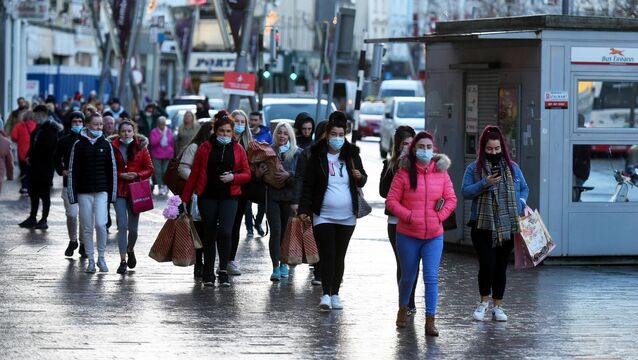Retail sales slumped in December after consumers did much of their Christmas shopping earlier than usual in November and many people stayed at home due to the spread of the Omicron coronavirus variant.
Economists said the scale of the hit bolstered their expectations that the world’s fifth-biggest economy shrank last month under the strain of Omicron and new government restrictions to slow its spread.
Sales volumes fell by 3.7% from November, the biggest fall since January of last year when the country was under a coronavirus lockdown.
Compared with December 2020, sales volumes were down by 0.9%, the Office for National Statistics (ONS) said.
A fall in demand for petrol and diesel, due to more people working from home under Plan B rules, also contributed to the slump.
Helen Dickinson, Chief Executive of the British Retail Consortium, said:
“The spread of Omicron may have slowed Christmas spending, but the perseverance of retailers helped deliver a successful Christmas for consumers. Retail workers pulled out all the stops to overcome supply chain issues, including an ongoing shortage of lorry drivers, to keep customers’ homes stocked with festive items. Growth in food outperformed non-food as many categories that had seen growth in November fell into decline, including furniture and household appliances.
“Customers face strong headwinds in 2022, with energy prices and National Insurance contributions both set to rise. The remaining disposable income also faces greater competition from a resurgence in tourism, eating out, sport and live music. Rising inflation is reducing consumer demand while increasing the costs for businesses. Retailers face rising wage bills, increased transport costs, and increased checks and documentation as a result of new import controls, all of which are forcing up prices at the checkout.”







